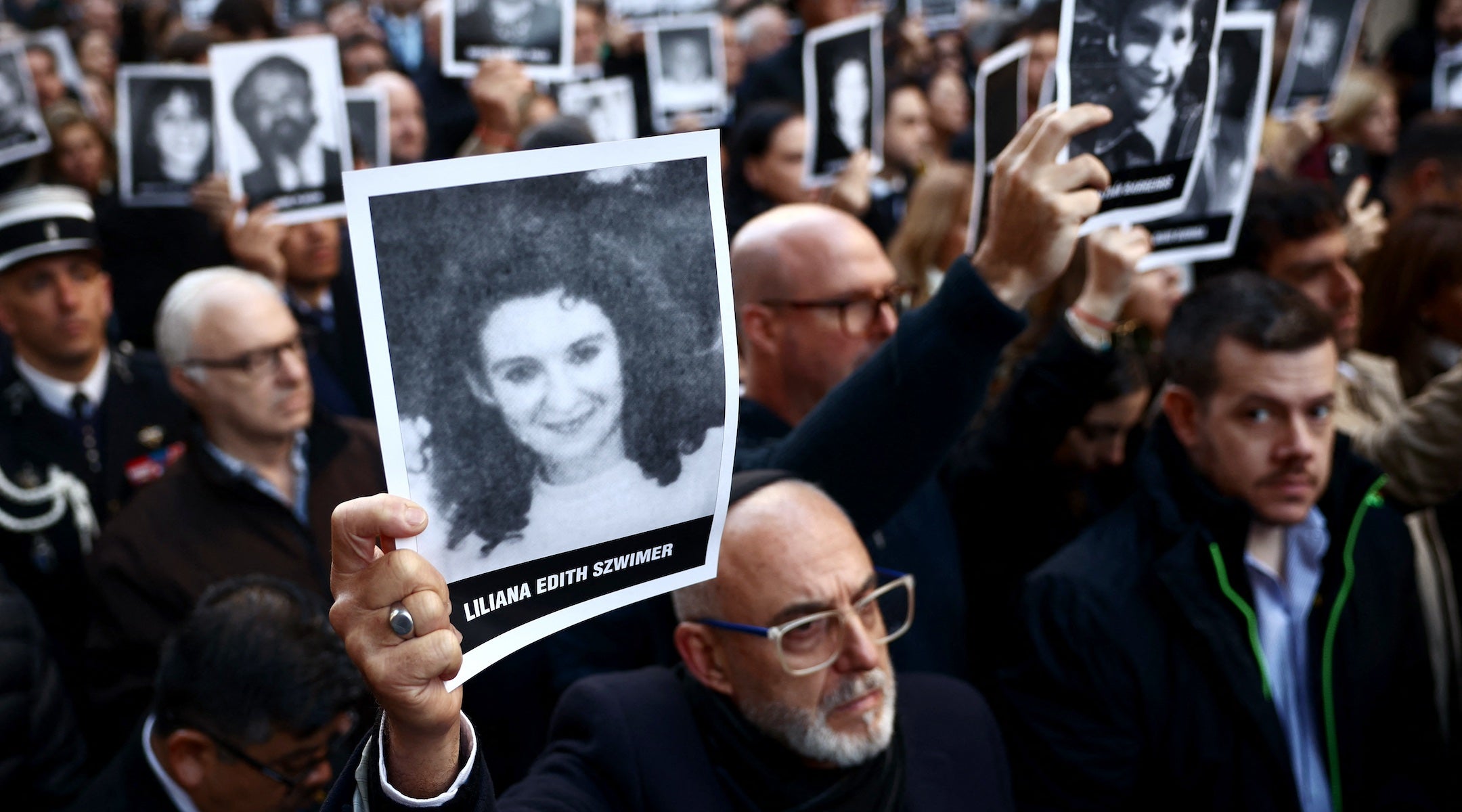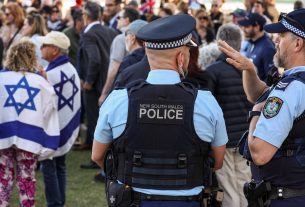BUENOS AIRES — An Argentine federal judge Thursday ordered that the 10 Iranian and Lebanese suspects accused in the deadly 1994 AMIA bombing be tried in absentia, allowing the case to move forward after decades of legal stagnation.
The complaint, filed by the families of the victims of the bombing, asked Federal Judge Daniel Rafecas to apply Argentina’s new “trial in absentia” law in the AMIA case, an attack on a Jewish community center that left 85 people dead and 300 injured in what remains the deadliest terrorist attack on Argentine soil.
The request was submitted by attorney Tomás Farini Duggan on behalf of the families of victims Luis Czyzewski and Mario Averbuch.
Rafecas ordered a trial for the current chief of the Islamic Revolutionary Guard Corps (IRGC) Ahmad Vahidi as well as nine others accused by the late AMIA prosecutor Alberto Nisman: Alí Fallahijan, Alí Akbar Velayati, Mohsen Rezai, Hadi Soleimanpour, Mohsen Rabbani, Ahmad Reza Asghari, Salman Raouf Salman, Abdallah Salman and Hussein Mounir Mouzannar.
Trying the suspects in absentia, Rafecas argued, would allow the courts to “at least try to uncover the truth and reconstruct what happened,” according to Buenos Aires Times, adding that “it is essential to proceed … to prevent the perpetuation of impunity.”
Until now, Argentina’s justice system did not allow trials in the absence of the accused in serious criminal cases such as this one. Last April, Argentinian prosecutors requested an arrest warrant for Iranian Supreme Leader Ayatollah Ali Khamenei over his alleged involvement in the 1994 bombing, and in April 2024, an Argentine court ruled that Iran and Hezbollah were behind the attack.
Argentina’s Congress approved the “trial in absentia” law four months ago as a legal mechanism to prosecute individuals accused of terrorism and crimes against humanity, including those connected to the 1992 bombing of the Israeli embassy and the 1994 AMIA attack.
Currently, the legal proceedings in the AMIA case have been frozen due to the requirement that defendants be physically present in court. The new law removes that obstacle, potentially paving the way for a full trial of the Iranian suspects, who remain at large and have never appeared before an Argentine court.
During the debate in the lower and upper houses of Congress, lawmakers referred to Hezbollah, Hamas, the Argentine hostages taken in Gaza and a controversial memorandum of understanding with Iran, reached in 2013, underscoring the long and complex history of both the AMIA and Israeli Embassy bombing cases.
The Argentinian Jewish umbrella organization DAIA publicly praised the new law, writing in a press release in February that, with its passage, “progress can be made in the prosecution of the alleged masterminds of the attack on the AMIA-DAIA headquarters, justice will be done, and impunity will end.”
Jewish community leaders and Sandra Arroyo Salgado, the former wife of Nisman, who died in 2015, were present during the lower house debate four months ago.
According to the Ministry of Justice, which introduced the bill, similar trial-in-absentia laws already exist in countries like Brazil, Italy, France, Germany, and Spain.
Keep Jewish Stories in Focus.
JR has documented Jewish history in real-time for over a century. Keep our journalism strong by joining us in supporting independent, award-winning reporting.




